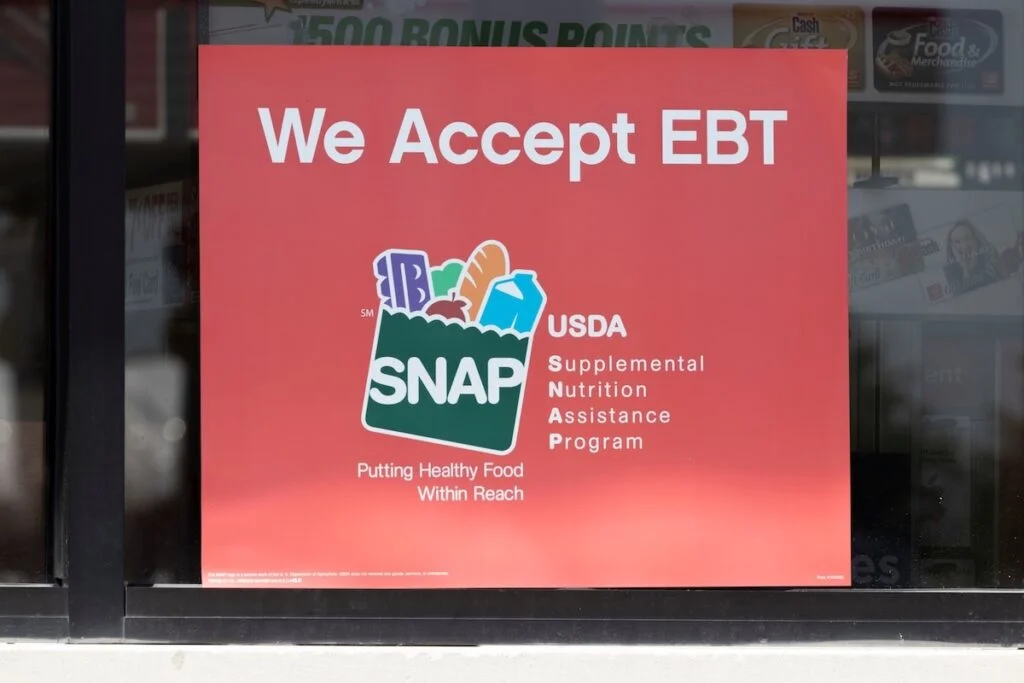Copyright Benzinga

As the federal government shutdown enters its third week, states are warning that millions of Americans could go without food assistance from the Supplemental Nutrition Assistance Program (SNAP) in November. States Warn SNAP Benefits May Stop If Shutdown Continues Texas' Health and Human Services Department issued a stark warning: "SNAP benefits for November won't be issued if the federal government shutdown continues past Oct. 27," reported The Hill. If the shutdown continues, an estimated 42 million Americans, about one in eight, could see their benefits delayed, reduced, or cut entirely. Similar notices came from Colorado, Illinois, Minnesota, Oregon, New York, Pennsylvania and West Virginia. USDA Faces Funding Shortfall Amid Shutdown Agriculture Secretary Brooke Rollins underscored the urgency on Thursday, saying, "We're going to run out of money in two weeks." The United States Department of Agriculture has told states to pause issuing SNAP benefits approved after Oct. 16 while exploring alternative funding options. SNAP, formerly known as the Food Stamp Program, provides grocery assistance to people living near or below the poverty line. The program is federally funded but administered locally, leaving states to navigate funding gaps during a shutdown. See Also: Exxon Mobil, Chevron, Occidental Petroleum In Focus As Expert Says ‘US Economy Is Far Less Sensitive To An Oil Shock’ Amid Israel-Iran Conflict SNAP Benefits At Risk As USDA Contingency Fund Falls Short The USDA has a contingency fund to keep SNAP benefits flowing, but experts warn it falls short of the $8 billion needed for November. States may try to supplement funding, though reimbursement is uncertain. Political tensions are complicating matters, with officials from both parties blaming each other for the shutdown and some questioning whether warnings about benefit cuts are being used as negotiation tactics. Carolyn Vega of Share Our Strength, a non-profit that focuses on child hunger, said, "We are in uncharted territory," noting that benefits have historically continued during past shutdowns. The upcoming One Big Beautiful Bill could further reduce benefits for certain recipients starting in November. On Sunday, Rollins highlighted ongoing efforts to combat the New World Screwworm (NWS) in Mexico, emphasizing national security concerns and continued monitoring in the U.S. Rollins shared that USDA teams are dispersing sterile flies, inspecting animals, and building a new sterile fly dispersal facility set to open in early 2026, while border states have reported zero detections since October 5.



